Over the last decade, countries like Kenya and Colombia have become large players in the floriculture industry. But what made them so successful? The International Union for the Protection of New Varieties of Plants (UPOV) System seems to play a large role as it provides plant variety protection and therefore enables growers to access varieties from all parts of the world.
In videos published last year on the developments in the floriculture industry in Kenya and Colombia, UPOV sees a correlation between the results of the countries' agricultural sector and from the time they joined UPOV. Since Kenya became a member of UPOV in 1999, for example, cut flower exports have increased drastically. In 1998 it was 57 million USD and in 2013 it was 546 million USD.
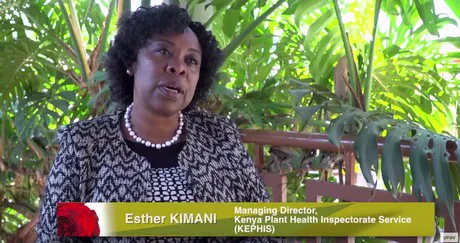
Peaceful transportation of the varieties
According to Esther Kimani, Managing Director at Kenya Plant Health Inspectorate Service (KEPHIS), a large part of the success lies in the fact that growers have access to all varieties from all parts of the world. And this is enabled by UPOV. Breeding is a time consuming process and only worthwhile if there is a chance to be rewarded for the investments made.
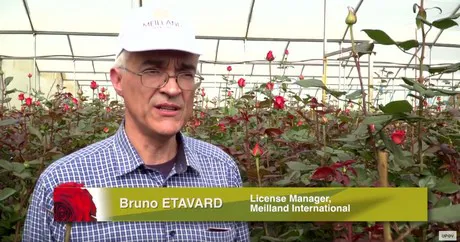
License Manager at Meilland International, Bruno Etavard, explains that when breeding roses, the first economical return will come after 7 years. "You cannot do that activity without having the security to get the return. Obviously at the same time, the UPOV system is fundamental for propagators and breeders in a given country. It allows the peaceful transportation of the varieties bred by the breeders."
Huge development floriculture industry
It offers opportunities for growers to put better varieties on the market. In the video, Ivan Freeman of Uhuru Flowers, growing 70 different roses varieties in Timau, Nanyuki, selling them to over 60 countries all over the world, explains the benefits of growing roses in their area. The specific climate and altitude have seen the Kenyan floriculture industry develop hugely. "When we started 10 years ago, we couldn't see any greenhouse around, now there is more than 200 ha within our sight."
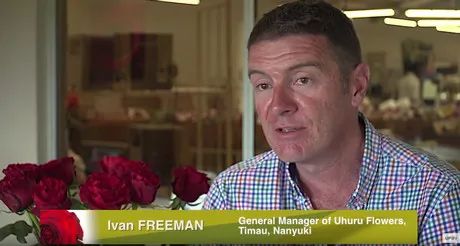
And as a result of the increase in farms in the country, the rose industry seem to have helped improve livelihoods, as it employs 500,000 Kenyans.
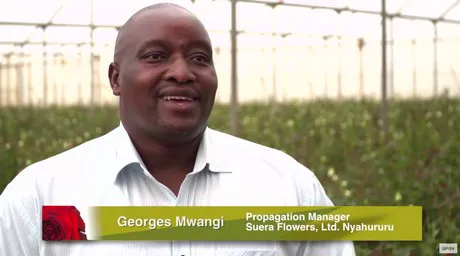
Knowledge transferred to indigenous Kenyans
The knowledge used to come from foreigners, particularly the Netherlands, but now it is transferred to more and more indigenous Kenyans. Georges Mwangi, propagation manager at Suera Flowers in Nyahururu, explains that just very few farms are still relying on foreign expertise as many farm managers took horticultural courses and are well educated. Also regarding the breeding, which is now mostly done in the Netherlands, he expects that in the next 10 years, a lot more roses grown will be bred and tested in Kenya.
Colombia
Also in Colombia, the country's agriculture being famous for its coffee and flower production, the plUPOV system seems to have greatly boosted the floriculture industry, along with other productive industries. According to Asocolflores, in January 2018, the flower industry generated 114.47 million US dollars for the production of 21,417 tons of flowers, not only fostering the growth of this sector, but also providing indirect employment to thousands of people, as well as colorful and varied Colombian flowers for millions of people to enjoy.
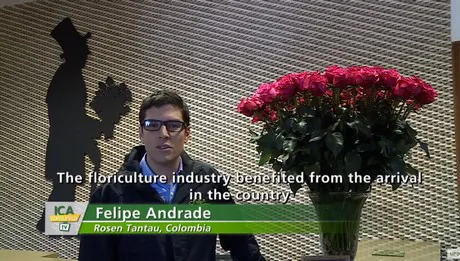
The floriculture industry benefited from the arrival in the country of new businesses. Rosen Tantau, for example, introduced new ornamental plant varieties and invested in Colombia. All of this continues to benefit the floriculture industry, since these new varieties have helped to achieve greater efficiency in the cultivation and production of an end product which meets market needs. Innovation in agriculture is clearly of great benefit to all stakeholders.
See below the videos:
For more information:
The International Union for the Protection of New Varieties of Plants (UPOV)
www.upov.int
